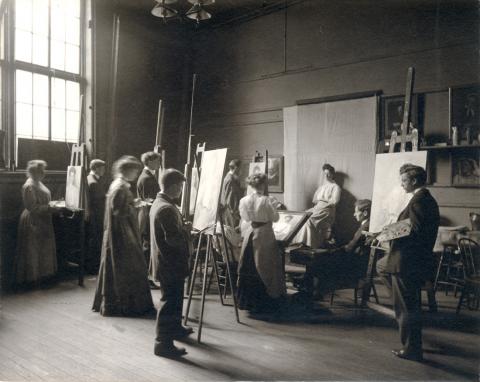Our Public Lands: A Delicate Balance
May 12,2016*This article represents my own opinion based on my own observations.
I have lived the bulk of my 22 years in my home state of Utah, and I can honestly say there is no place better in the world to live. I have deep familial ties to this land, with some of my ancestors arriving with the first of the Mormon pioneers in July of 1847, and subsequent others that came from various areas in Europe seeking better lives. Utah is home to so many amazing landscapes, from the red-rock canyons and arches in the south to the granite-topped mountain peaks in the north, and growing up, I have spent so much time fishing, camping, and hiking on these amazing lands. They are a part of me, as I have so many great memories of fishing with my Dad on the Provo River, and hiking in Zion National Park with my Grandparents, and I continue to hike and explore areas all over the state today. But unfortunately they are always under threat from overdevelopment, either from ski resorts or energy companies, for Utah is seen as a ski haven and holds vast reserves of resources such as oil shale, coal, and natural gas.
State policy on lands is based off an irrational hatred of the Federal land management agencies, (I don't support the Federal Government in many cases, but it is better than then state for the most part with land management, though it has issues as well), and often leans to where the money is. Utah is currently planning to sue the Federal Government to make it turn over vast areas of land to state control, which will then subsequently be sold off to promote energy development, and likely block recreational uses. Many of these lands, such as the Bear's Ears area in southeastern Utah, are considered sacred and in need of protection by numerous Native American tribes, and others which fear limited access. Even in the Wasatch Mountains, ski resorts are always trying to expand further into national forest land. As an avid user of these public lands, I fear that many of the lands will be lost to future generations, depriving them of the connection to nature that is in all of us. So what is to be done?
What worries me is that since so many people tend to enjoy resort style recreation and free roam with ATVs, they don't appreciate the lands that they use. Appreciating and being respectful of public lands will ensure they last for the enjoyment of future generations, and holding a balance between development and conservation is essential. I enjoy riding my mountain bike at the resorts in the summer, my motorcycle in the desert, but I also enjoy the solitude of wilderness areas. It is that balance that is key, as I don't ride my motorcycle in wilderness areas (which is illegal). Staying on designated trails with designated vehicles and respecting others is the best way to preserve and protect access to public lands. It always seems to come down to general respect for others. I don't demand that the resorts be torn down, as it is a love and a right of many people to ski there, but they should stay within their boundaries, and demanding that more ski lifts be built in national forest areas subsequently impedes my rights as a hiker/camper. Similarly with the energy development, I don't demand that the current operations be dismantled, as that impedes their rights, but I do oppose their expansion onto lands enjoyed by recreation since it impedes my rights and the rights of others. Frankly, it is a very messy issue with multiple ideas of what is best depending on who you talk to, but it is possible to reach a sustainable compromise that will not impede the rights freely enjoyed by all Americans. I think that through respect for each other and the land can we reach a sustainable balance.
I feel that the best part of living in the west is the open spaces, as it is a huge part of our culture, our heritage, and it is our responsibility to preserve it. To preserve our lands we must show that we care for them, respect them, and are willing to take care of them. Overdevelopment is a dangerous road, and keeping the wild close to us will insure that we preserve our heritage and also what it means to be human. We can't see ourselves as apart from nature, for it is as much a part of us as we are of it, no matter how hard we try. I have faith that we can reach a balance, and preserve some of the world's most amazing natural wonders for the future. A Native American saying states, "We do not inherit the Earth from our Ancestors, we borrow it from our children." What we do today will have repercussions in the future, and making policies with an eye toward a better, sustainable future will not only improve ourselves as a country, but also as a people.
Schedule






